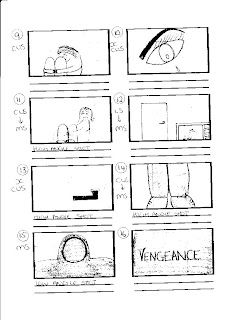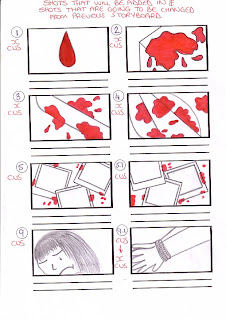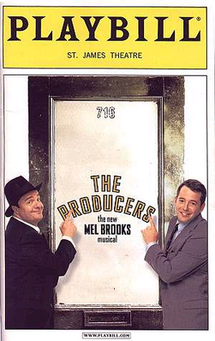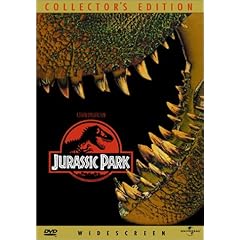During this period of time the group has been editing the filmed footage for our opening sequence. We have been working on the shots, transitions, sound and effects. We have had to try several different soundtracks in order for it to fit with our sequence. We also had to try out several different shots in order for the sequence to flow and for them to fit.
The seqeunce now has nearly been completed.We only have to add the title credits to the sequence to gain our final result.
Thursday 26 February 2009
Thursday 19 February 2009
19.02.09 Filming Our Opening Sequence
The group got together today on the 19th of February in Zulaikha's home to film the footage for our opening sequence. This is a list of things we used in our sequence including characters, props and location.
Characters
Characters
- Villian - Fatima
- Victim - Ruby
- Garage / workshop
Props
- Food colouring used as fake blood
- Tools - blades, screwdrivers, plyers etc...
- Spying Pictures of the victim
- Workshop Table
- Rope for hands
- Strong cloth to tie around mouth
- Side lamps
Costumes
- Victim - Plain dull dark coloured clothing
- Villian - Also dark coloured clothing - hoody
Thursday 5 February 2009
Storyboard for our opening sequence
Before we started filming we had to create a storyboard to follow. As a group we put together this storyboard for our opening sequence and this will hopefully help us when filming and give us an outline of which to work with.
This was our first draft storyboard


After looking at the first draft of our storyboard we looked at ways in which we can improve the shots in order to make them more appealing and affective towards our audience. These are some of the shots we have added and changed in our sequence. For example, the first four shots we have decided to use extreme close up shots in order to emphasis on the blood and brutality of the tools on the table. Little aspects of our opening sequence such as these, will make a great change on the overall affect and therefore we have chosen to alter a few things (which are shown in the storyboards below) in order to make our opening sequence more enhanced.


This was our first draft storyboard


After looking at the first draft of our storyboard we looked at ways in which we can improve the shots in order to make them more appealing and affective towards our audience. These are some of the shots we have added and changed in our sequence. For example, the first four shots we have decided to use extreme close up shots in order to emphasis on the blood and brutality of the tools on the table. Little aspects of our opening sequence such as these, will make a great change on the overall affect and therefore we have chosen to alter a few things (which are shown in the storyboards below) in order to make our opening sequence more enhanced.


Drawing by Zulaikha Khan
Monday 2 February 2009
Film Editing
Film editing is an art of storytelling practiced by connecting two or more shots together to form a sequence, and the subsequent connecting of sequences to form an entire movie. Its the work of selecting and joining together shots to create a finished film. Film editing is the only art that is unique to cinema and which separates film making from all other art forms. Editing is the art, technique, and practice of assembling these shots into a consistent whole.A film editor works with the layers of
- Images
- Story
- Music
- Rhythm
- Pace
- Shapes
- Actors Performances
- Re-directing
- Re-writing the film during the editing process
Film editing can be used in various ways:
- It can create sensually provocative montages
- It can bring out the emotional truth in an actor's performance
- It can create a point of view on otherwise obtuse events
- It can guide the telling and pace of a story
- It can create the illusion of danger where there is none
- Surprise when we least expect it
- A vital subconscious emotional connection to the viewer.
A film editor is a person who practices film editing by assembling footage into a coherent film. Film editors often are responsible for pulling together all of the elements of story, dialogue, music, sound effects, visual effects, rhythm and pace of a film.
There are various types of editing used in film making to make the film look more effective and realistic, cuts and transitions and other different types of editing techniques are used in films to make it look original. The different types of film editing techniques are:
Cut
A visual transition created in editing in which one shot is instantly replaced on screen by another.
Cross cutting
Cutting back and forth quickly between two or more lines of action, indicating they are happening simultaneously.
Cutting back and forth quickly between two or more lines of action, indicating they are happening simultaneously.
Dissolve
A gradual scene transition. The editor overlaps the end of one shot with the beginning of the next one.
A gradual scene transition. The editor overlaps the end of one shot with the beginning of the next one.
Establishing shot
A shot, normally taken from a great distance or from a "bird's eye view," that establishes where the action is about to occur.
A shot, normally taken from a great distance or from a "bird's eye view," that establishes where the action is about to occur.
Fade
A visual transition between shots or scenes that appears on screen as a brief interval with no picture. The editor fades one shot to black and then fades in the next. Often used to indicate a change in time and place.
A visual transition between shots or scenes that appears on screen as a brief interval with no picture. The editor fades one shot to black and then fades in the next. Often used to indicate a change in time and place.
Wipe
Visible on screen as a bar travelling across the frame pushing one shot off and pulling the next shot into place.
Visible on screen as a bar travelling across the frame pushing one shot off and pulling the next shot into place.
Final cut
The finished edit of a film, approved by the director and the producer. This is what the audience sees.
Famous Directors
A film director or filmmaker, is a person who directs the making of a film. A film director visualizes the script, controlling a film's artistic and dramatic aspects, while guiding the technical crew and actors in the fulfillment of his or her vision. A film director is responsible for overseeing creative aspects of a film. They often develop the vision for a film and carry out , deciding how the film should look. They also direct which tone it should have and what the audience should gain from the cinematic experience . Directing a film is a kind of storytelling. Film directors are responsible for approving camera angles, lens effects, lighting, and set design, and will often take part in hiring key crew members. They coordinate the actors' moves and also may be involved in the writing, financing and editing of a film.



The greatest FILM DIRECTORS of all time are:
- Mel Brooks
- Steven Spielberg
- George Lucas
- Peter Jackson
Mel Brooks- was born on june 28, 1926 in brooklyn New York. His name was Mclvin Kaminsky. He is a actor, writer, comedian, and a producer. He received many awards for his films. In 1963 he received an Oscar for best animated short; The Critic. In 1966 an Emmy for outstanding writing achievement in variety, The Sid Caesar, Imogene Coca, Carl Reiner, Howard Morris special. In 1968 he won an Oscar for best screenplay in The Producers. In 1997, 1998, and 1999 he gained an Emmy for outstanding guest actor for Mad About You. In 1999 he received a Grammy for best spoken comedy album for The 2000 Year Old Man In The Year 2000. His latest award in 2001 was a Tony for the best musical for The Producers. Mel Brooks has truly had a great career.

Steven Spielberg- Steven Spielberg was born on December 18th 1946 in Cincinnati, Ohio. His mother was Leah Adler, and his father was Arnold Spielberg. Steven is also a screenwriter and producer. In 2008, the magazine Premiere listed him as the most powerful and influential figure in the Motion picture industry. In a career of over four decades, Spielberg's film have touched on many themes and genres. Spielberg's early sci-fi and adventure films, sometimes centering on children, were seen as an archetype of modern Hollywood blockbuster filmamking. In later years his movies began addressing such as the Holocaust, slavery, war and terrorism . Speilberg won the academy Award for Best Director for 1993's Schindler's List and 1998's Saving Private Ryan. Three of Spielberg's films, Jaws(1975), E.T. the Extra-Terrestrial (1982), and Jurrasic Park (1993), broke the box office records, each becoming the highest- grossing film made at the time. To date, unadjusted gross of all Spielberg directed film exceeds $8.5 billion worldwide.

George lucas- George Walton lucas was born on May 14th 1944. He is an Academy Award-nominated American film director, producer, screenwriter and chairman of Lucas film Ltd. He is best known for being the creator of the epic Sci-Fi franchise Star Wars and the archaeologist adventurer character Indiana Jones. Lucas is one of the American film industry's most financially successful independent directors/producers, with an estimated net worth of $3.9. billion.

Peter Jackson- Peter Robert Jackson was on born 31 October 1961 and is a three time Academy Award winning New Zealand filmmaker, producer and screenwriter, best known for The Lord of the Rings trilogyadapted from the novel by J. R. Tolkien. He is also known for his 2005 remake of King Kong. He won international early in his career with his "slapstick" horror comedies, before coming to mainstream prominence with Heavenly Creatures, for which he shared an Academy Award best screenplay nomination with his partner Fran Walsh.

Subscribe to:
Posts (Atom)